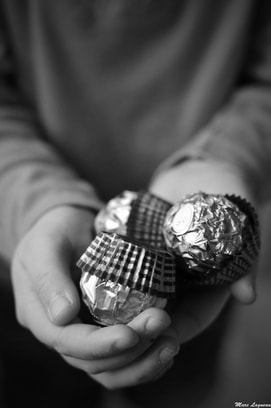But this is not what I wanted to talk about. Linguistics are awesome and lead us deeper into the contemplation of divine mysteries, but love is worthy of more. Frequently, we are called to love our neighbors. When a tragedy strikes or we encounter someone having a hard time of it, we feel sympathy. It has become the custom to offer up our "thoughts and prayers" or to say, I'll be praying for you. But how often do we? When did it become enough to love our neighbor by offering expressions of care and sympathy without a tangible helping hand?
If we offer a prayer for someone, pray with them. Pray fervently for them. That in itself is an act of love. But Christ didn't just offer his prayers - he offered his whole self - body, blood, soul, and divinity. He didn't say "send thoughts and prayers to the needy" but commanded us to love our neighbor as ourselves: To clothe the poor and feed the hungry, to comfort the grieving and the sick and yes - to turn the tables of the temple and rise up against injustice. Our God is not a tame God, nor should our love be weak and meager offerings of empty words. So pray - pray fervently and whole heartedly for those in need and for the strength of heart to do what God calls you to do - and then become yourself the answer to someone's prayers.
0 Comments
|

 RSS Feed
RSS Feed
